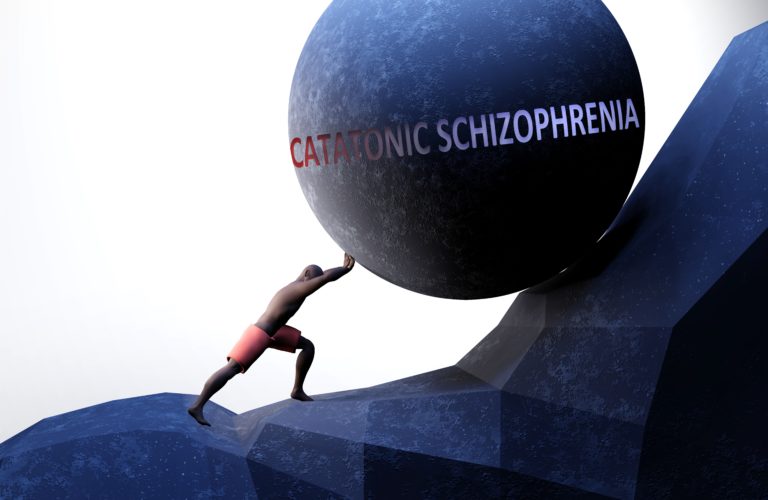Mental health professionals don’t use the term disorganized schizophrenia that much anymore, but the symptoms that used to define this disorder continue to cause considerable distress for millions of people throughout the world.
If you or a loved one are struggling with the symptoms of Schizophrenia, we can help. At Arbor Wellness, our residential schizophrenia treatment programs can offer a safe space for healing. Call us now at (629) 217-0164 or verify your insurance now.
What Is Disorganized Schizophrenia?
The fourth edition of the Diagnostic and Statistical Manual of Mental Disorders (DSM-4), included criteria for five subtypes of schizophrenia:
- Paranoid schizophrenia
- Catatonic schizophrenia
- Hebephrenic or disorganized schizophrenia
- Undifferentiated schizophrenia
- Residual schizophrenia
These subtypes were based on which type of symptom a person exhibited. However, experts noticed that many people who met the criteria for one of the subtypes also showed symptoms of one or more of the other types.
In 2013, when the DSM-5 was published, these subtypes were eliminated. As established in this updated reference book, a person may be diagnosed with schizophrenia if they meet two of the following five criteria (one of which must be 1, 2, or 3):
- Delusions, which are rigidly held beliefs that a person clings to even when presented with evidence that clearly disproves them
- Hallucinations, which are perceptions that to not have an actual external stimulus (such as seeing, hearing, or otherwise sensing things that don’t exist)
- Disorganized thinking, which is indicated by an inability to express one’s thoughts in a logical, comprehensible manner
- Grossly disorganized or catatonic behavior, which can include acting in a childlike manner, exhibiting unprovoked aggression, and holding one’s body in odd positions
- Negative symptoms, which include diminished expressiveness and a lack of motivation to engage in social or work-related activities
Prior to the removal of the schizophrenia subtypes that were included in the DSM-4, a person who exhibited diminished expressiveness, disorganized thinking, and/or grossly disorganized behavior (but not catatonia) would likely have been diagnosed with disorganized schizophrenia.
Today, someone who exhibits those same symptoms would simply be diagnosed with schizophrenia.
Signs and Symptoms of Disorganized Schizophrenia
The following are examples of the signs that could have previously led to a diagnosis of disorganized schizophrenia:
- Responding to questions with statements that aren’t related to the original question or that quickly divert from the question (a process that is often referred to as derailing)
- Using words because of their sounds or rhythms instead of the meaning they convey
- Using made-up words or terminology that that can only be understood by the speaker
- Speaking in a manner that is virtually incomprehensible
- Echoing, or repeating words used by others
- Dressing in a particularly strange manner
- Talking to oneself
- Engaging in inappropriate sexual behaviors
- Becoming angry with or aggressive toward someone else for no apparent reason
- Speaking in a flat, monotone voice
- Failing to use facial expressions or gestures when speaking
- Displaying little to no interest in interacting with others or even leaving the house
Since the DSM-5 no longer differentiates between disorganized schizophrenia and the other subtypes, someone who is diagnosed with this condition may also experience hallucinations and delusions.
Auditory and visual hallucinations are the most common, but people can also have hallucinations that involve touch (tactile), smells (olfactory), and taste (gustatory).
If a person with schizophrenia has delusions, these can include:
- Claiming that they are being spied on or sent coded messages via mass media
- Believing that their loved ones or strangers are plotting to cause them harm
- Stating that they have special talents (that they don’t actually possess) or magical powers
- Thinking they are in a romantic relationship with a famous person who they have never actually met
As noted earlier in this post, a person who develops delusions such as these will cling to them even if they are shown clear evidence that disproves their beliefs.
Treatment Options for Disorganized Schizophrenia
Treatment for schizophrenia often involves a combination of medication and therapy.
Depending on the type and intensity of a person’s symptoms, they may benefit from one or more of the following prescription medications:
- First-generation or “typical” antipsychotics such as chlorpromazine (Thorazine) and haloperidol (Haldol)
- Second-generation or “atypical” antipsychotics such as aripiprazole (Abilify) and lurasidone (Latuda)
- Mood stabilizers such as lithium and valproic acid
- Antidepressants such as paroxetine (Paxil) and sertraline (Zoloft)
Finding the right medications and the right dosage levels can take time, as the prescribing physician and the patient must work together to evaluate how effective the medications are at alleviating symptoms and determine if they produce any intolerable side effects.
The therapeutic part of schizophrenia treatment may include a variety of approaches, such as:
- Individual, group, and family therapy sessions
- Cognitive behavioral therapy (CBT)
- Cognitive enhancement therapy (CET)
- Psychoeducation sessions for patients and loved ones
- Social skills instruction
In addition to identifying the most beneficial medications, therapies, and support services, schizophrenia treatment providers will also work with patients and their family members to determine which of the following levels of care are most appropriate:
Some patients are best served by starting at the residential level, then stepping down to a PHP and an IOP for continued support. Others may only need to receive care at one or two of these levels.
With such an array of options, it is important to find a provider who will thoroughly review the patient’s history and assess the full scope of their needs, then develop a customized plan just for them.
Find Treatment for Disorganized Schizophrenia in Nashville
If someone that you care about has been exhibiting symptoms of disorganized schizophrenia or any other form of this disorder, Arbor Wellness is here to help.
Our mental health treatment center in Nashville, Tennessee, is a safe and welcoming place where your loved one can receive personalized care from a team of highly skilled professionals.
We understand the many ways that schizophrenia can undermine a person’s ability to live a full and satisfying life, and we are committed to providing the focused solutions that can help your loved one achieve improved health and greater independence.To learn more or to schedule a free assessment, please visit our Admissions page or call us today.


















